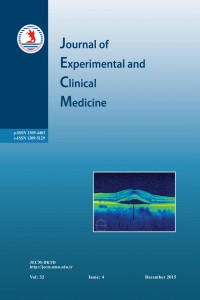When should cardiopulmonary resuscitation be stopped: Opinions of the emergency medicine physicians in Turkey
Abstract
We aimed to define point of view of the Emergency Medicine Physicians (EMPs) working in emergency services in Turkey about the duration of cardiopulmonary resuscitation (CPR) and to determine whether a standardization could be developed for CPR duration in the light of this information. After approval of the ethics committee, a survey form was prepared using Google Document and internet access address was sent to 1.404 EMPs via mail. A total of 428 persons responded the survey and 426 appropriate responses were assessed. Of the EMPs, 64.2% suggested that the persons who perform and/or manage CPR must make the decision for the duration. The participants stated that CPR time should be longer at younger ages and shorten with aging and that duration of CPR must be shorter in patients with the end-stage. The decision for ‘Do Not Attempt Resuscitation (DNAR)’ can not be made in our country. Legal studies must be conducted for law, regulations and notification in order to made decision for DNAR only in terminal stage patients. Therefore there must not be a law, regulation or CPR guide including exact duration for CPR.
Details
| Primary Language | English |
|---|---|
| Subjects | Health Care Administration |
| Journal Section | Internal Medical Sciences |
| Authors | |
| Publication Date | January 8, 2016 |
| Submission Date | September 22, 2015 |
| Published in Issue | Year 2015 Volume: 32 Issue: 4 |
Cite

This work is licensed under a Creative Commons Attribution-NonCommercial 4.0 International License.


